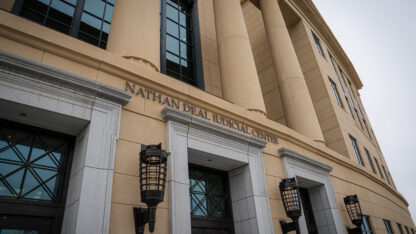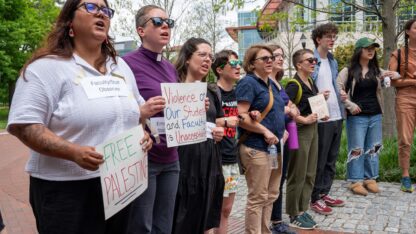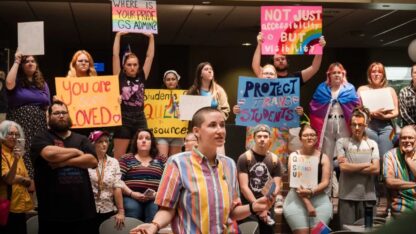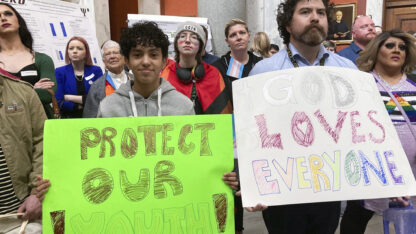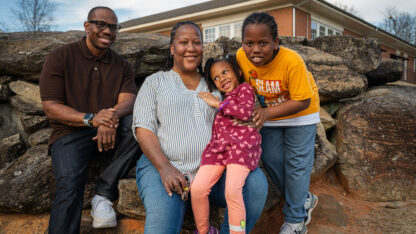The First Year Of Atlanta’s Academic Recovery Academy Comes To An End
Atlanta Public Schools wraps up its Academic Recovery Academy on June 30. 11,300 students enrolled in the program, which aimed to make up for learning lost during the pandemic and prepare students for the upcoming school year. The district held the ARA at several different schools. At Jean Childs Young Middle School, for example, students from three different middle schools attended class for the month of June.
Planning For The Program
Assistant Principal Roderic Hister says about 375 students from three different middle schools enrolled in the program at Young. He says attendance is usually somewhere between 300 and 350. But when he first heard that Young would be an ARA site, Hister wasn’t happy.
“Historically there have been rivalries [between middle schools],” he said. “So we want to be mindful of that and want to…set our students up for success.”
However, Hister said, that hasn’t been a problem.
“I think part of the reason is because they’ve been away for so long that that rivalry has minimized,” Hister said.
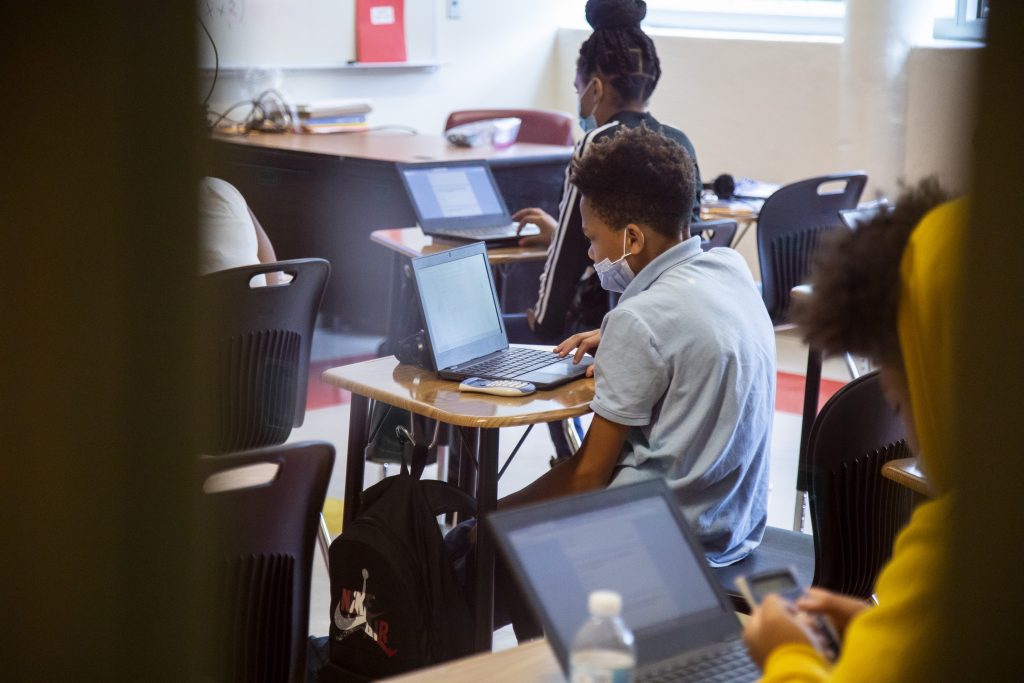
Some students in the program at Young expressed relief to be back learning in person.
“You meet new people, teachers you don’t know, a different school,” said seventh-grader Janiya Alexander.
“I’ll be honest, I missed being in the classroom with children. Teaching them through a screen…it doesn’t compare to the interactions that we have with the children.”
–Ashley Hansberry, APS English/Language Arts Teacher
Eighth-grader Keaira Poole said she accomplished a lot during the four-week session.
“I learned about variables, like terms and all that in math,” she said. “In reading, which my favorite subject, I learned…a lot of stuff about writing summaries. I learned that really well. I learned a lot of things.”
The Academic Recovery Academy is a full day of school. Students take classes in math, English/Language Arts, and science. There’s also time set aside each morning for Social-Emotional Learning, where teachers and students discuss issues outside of academics.
“We take it quite seriously, allowing the teachers and students to get to know each other to build those relationships, and to really make the learning environment safe and productive,” Hister said.
The afternoons are more flexible, with enrichment activities, like Science, Technology Engineering, and Math (STEM) programs and opportunities for students to socialize.
‘I’ve Definitely Seen Growth’
Students are assessed at the beginning and end of the program to see how much progress they’ve made. English/Language Arts teacher Ashley Hansberry said she’s noticed a difference in her students.
“I’ve definitely seen growth with the children who were not comfortable with reading,” she said. “Now they want to read. ‘Miss Hansberry, I want to read, I want to read!’ So that’s good. And they want to answer questions.”
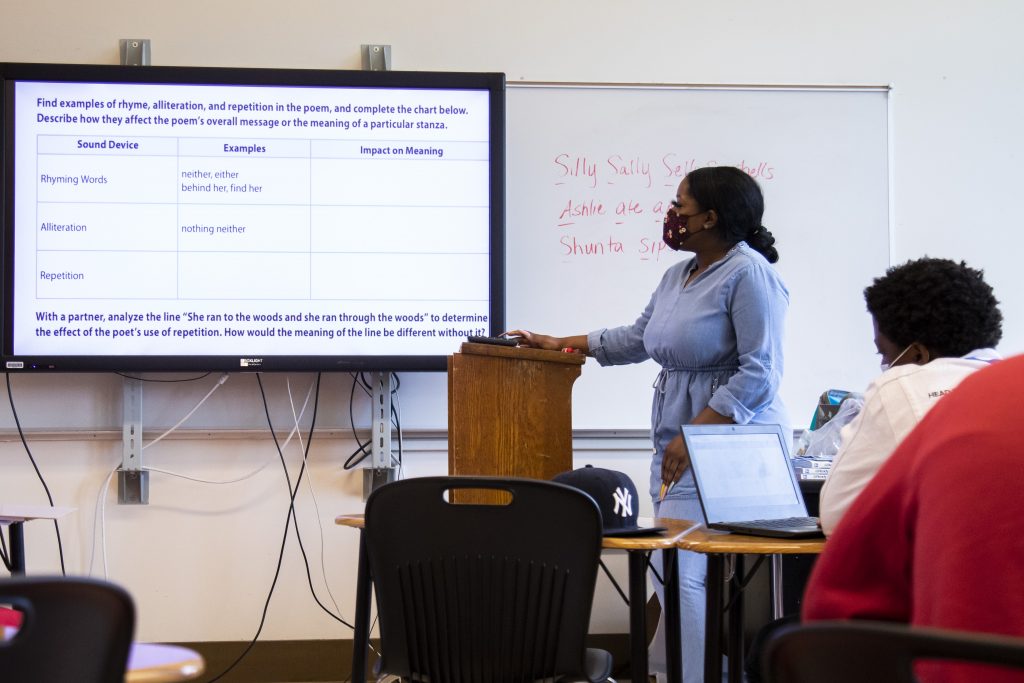
Hansberry is one of 1870 teachers the district hired for the program.
The district offered additional pay, but few people could blame teachers for wanting a break after teaching through a pandemic. For Hansberry, teaching at the ARA wasn’t a tough sell.
“The incentives are great,” Hansberry said. “I’ll be honest, I missed being in the classroom with children. Teaching them through a screen…it doesn’t compare to the interactions that we have with the children.”
One of her ELA classes has about ten students, so Hansberry can easily move around to monitor their reading.
“Who’s going to read for us with some feeling please?” she asked them.
Her eighth graders are reading the poem ‘Harriet Tubman’ by Eloise Greenfield. Hansberry has them alternate reading aloud.
“Harriet Tubman didn’t take no stuff,” a student began.
“Stop right there,” Hansberry said. “How would you say that with some feeling?”
The student took a beat and read with gusto, “Harriet Tubman didn’t take no stuff. Wasn’t scared of nothing either.”
‘If There’s No Struggle, There’s No Progress’
Math teacher Alexandria Gonsalves says the Recovery Academy was critical for some students.
“Let’s be honest, a lot of students did not properly get the adequate skills that they needed to throughout the school year,” she said. “I knew I wanted to be a part of the group to make sure those face-to-face students get…the tools that you need to go to ninth grade.”
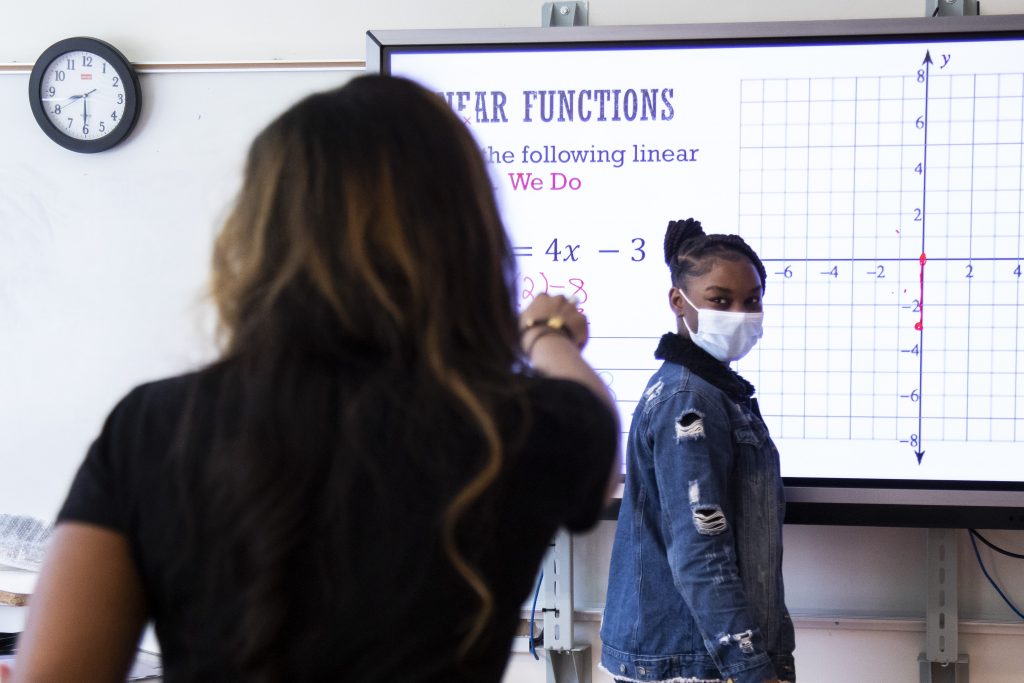
In one of her math classes, Gonsalves has six students working on different skills. She helps two students with linear equations. She has them repeat the problem until she’s sure they understand what they’re doing.
“My motto is, ‘If there’s no struggle, there’s no progress,” [by] Frederick Douglas,” she said. “I love that because…in math, you’re not going to be able to learn if you’re not struggling a little bit because you’re going to learn from your struggling.”
Hister rates Young’s program a success in part due to the planning that went into it.
“…the organizational structure, the training, and professional learning, the structure of the school day just the facilitation of transportation, making sure the students knew- as well the staff knew- the expectations throughout the building,” he said.
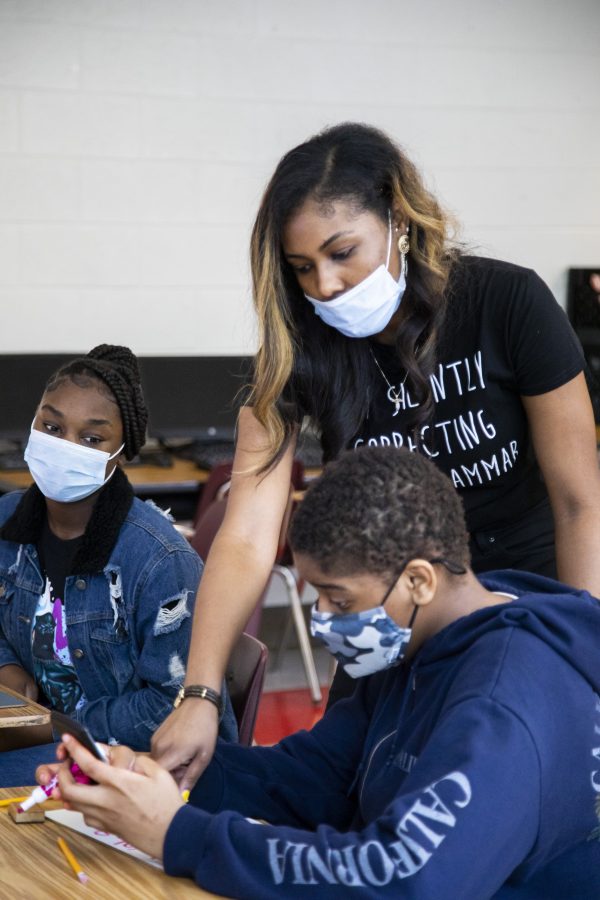
APS allocated about $7 million in federal stimulus money to pay for the program. The ARA is part of the district’s three-year program to make up ground lost during the pandemic. Although APS gave students the option to return in-person starting in January, only about 40% of students returned face-to-face. Students who want to remain remote when the 2021-22 school year begins will have to enroll in Atlanta Virtual Academy.
Officials hope students who participated in the ARA this year will be better-prepared–academically and socially–for the new school year that begins Aug. 5.
A note of disclosure: The Atlanta Board of Education holds WABE’s broadcast license.



